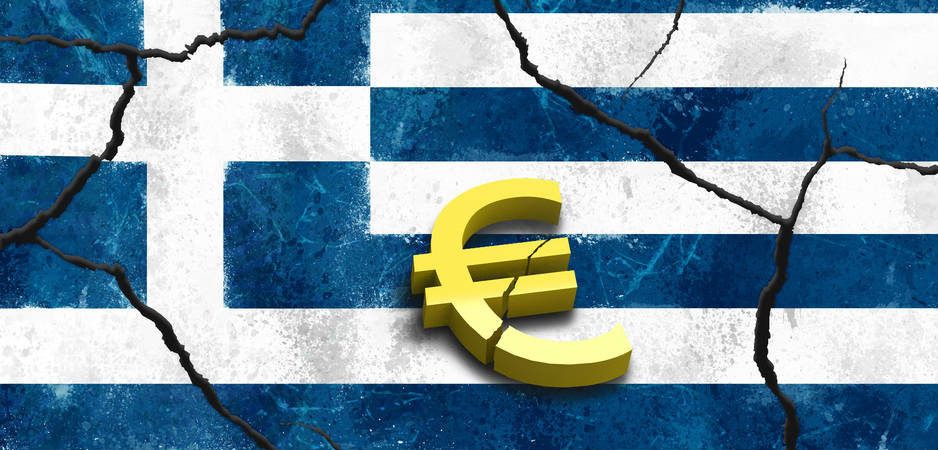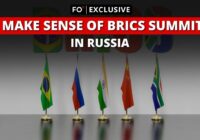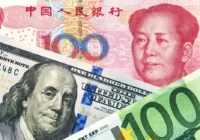Germany and the European Central Bank may not come to the rescue this time.
An interesting month lies ahead for the euro area. On January 22, the European Central Bank (ECB) will meet and they will either announce a QE-style monetary policy action, as most expect by now, or they will disappoint markets with yet another statement suggesting the need to wait for more data and the effects of what has been done so far. On January 25, three days later, elections in Greece will decide whether the first political party with strong views against austerity and with an explicit proposal for a serious haircut on its government debt reaches power in the euro area.
 No doubt that the outcome of these two developments will determine the fate of the euro economy over the coming years, but it is also possible that it determines the fate of the euro area — at least the current membership.
No doubt that the outcome of these two developments will determine the fate of the euro economy over the coming years, but it is also possible that it determines the fate of the euro area — at least the current membership.
Rumors have started reaching the press that the Germans will not negotiate with Syriza and that they are ready to let Greece leave the euro. We have seen this before and we know the outcome. Back in 2011 and 2012, when the fear of Greece leaving the euro was at its peak (and the threat of Syriza winning the elections was also real), the contagion to other countries, in particular Italy and Spain, forced the Germans (and the ECB) to come to the rescue. A haircut on Greek debt plus the “whatever it takes” statement from Mario Draghi saved the day and ensured that no country left the euro area.
It’s Different This Time
But the situation is very different now for many reasons. So far, contagion has not spread to other euro countries, possibly because the other countries are seen as having stronger fundamentals. But what really matters might not be economics but politics. In some of the other euro countries, we have political parties with platforms that are very similar to the Syriza party in Greece (for example, Podemos in Spain). They (and the citizens of these countries) will be looking very carefully at what is happening in Greece. If Syriza wins and their negotiating strategy is successful, it is likely that we will see similar political changes in other euro countries and a revolt against the current euro economic policy. This is the last thing Germany wants.
How does Germany avoid this outcome? Let me be cynical and argue that they only have one potential strategy, a very risky one. Let the ECB be nice on January 22 and let them go ahead with a full-blown QE policy involving government bonds. Let the Greeks decide on January 25 if they want to be part of the euro. If the Greeks vote for Syriza, then the Germans will not negotiate and will only leave Greece with one alternative: to leave the euro.
If that happens, the financial system in Greece is likely to be under enormous pressure with a high chance of bank runs. While the risk might spread to other countries, the ECB could be very aggressive to avoid contagion. If a bank run happens in Greece and the ECB refuses to provide liquidity, Greece will default and be out of the euro. This will lead, at least in the short-run, to a deeper crisis in Greece with strong disturbances to the banking sector and businesses. This is exactly what the Germans need to scare the other countries in the euro area not to follow the same path and stay in the euro. The costs are the potential losses on Greek debt, but at this point very few people believe that Greece will be able to pay its debt.
This is a serious gamble. It requires that German voters accept the new ECB aggressive policies. That the potential losses associated with a Greek default and exit from the euro are contained and that the other euro countries play along with this strategy. Very risky.
But maybe I am wrong and the Europeans will find once again a way to kick the can further down the road without either a proper solution or a final crisis, but I feel this time it is different and the possibility of a serious political challenge to the status quo is too high to ignore the possibility of a very volatile period ahead.
*[This article is republished courtesy of Fair Observer‘s content partner, INSEAD Knowledge. Copyright © INSEAD 2015.]
Fair Observer is a nonprofit organization dedicated to informing and educating global citizens about the critical issues of our time. Please donate to keep us going.
The views expressed in this article are the author’s own and do not necessarily reflect Fair Observer’s editorial policy.
Photo Credit: Giordano Aita / Elenarts / Shutterstock.com
Support Fair Observer
We rely on your support for our independence, diversity and quality.
For more than 10 years, Fair Observer has been free, fair and independent. No billionaire owns us, no advertisers control us. We are a reader-supported nonprofit. Unlike many other publications, we keep our content free for readers regardless of where they live or whether they can afford to pay. We have no paywalls and no ads.
In the post-truth era of fake news, echo chambers and filter bubbles, we publish a plurality of perspectives from around the world. Anyone can publish with us, but everyone goes through a rigorous editorial process. So, you get fact-checked, well-reasoned content instead of noise.
We publish 2,500+ voices from 90+ countries. We also conduct education and training programs
on subjects ranging from digital media and journalism to writing and critical thinking. This
doesn’t come cheap. Servers, editors, trainers and web developers cost
money.
Please consider supporting us on a regular basis as a recurring donor or a
sustaining member.
Will you support FO’s journalism?
We rely on your support for our independence, diversity and quality.








Comment